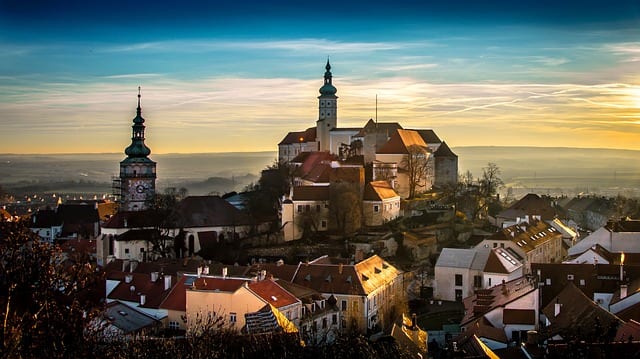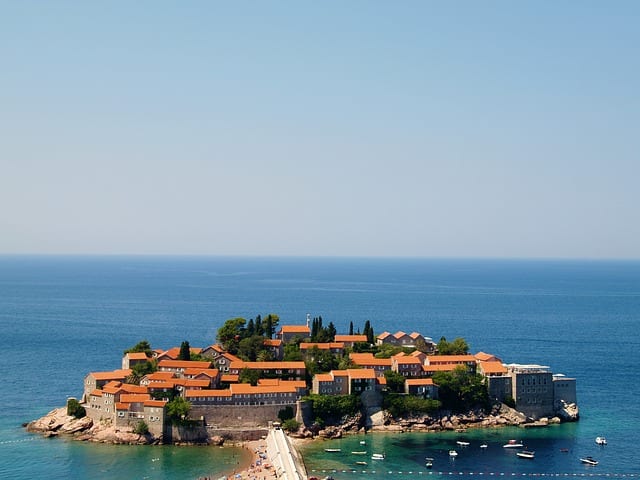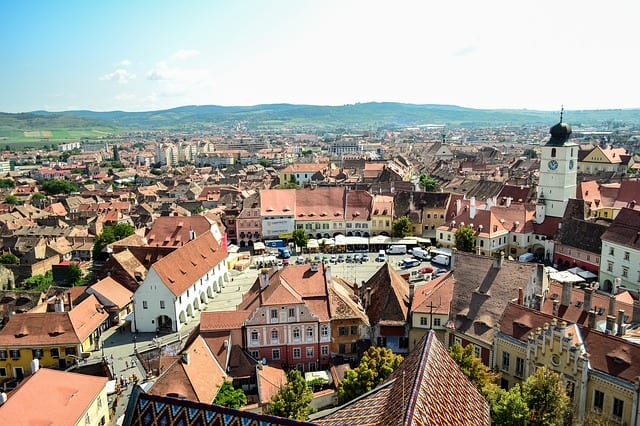
Top 5 Best Countries in Europe to Be Self Employed
Taking the plunge and becoming self-employed in your own country is daunting enough, but considering taking your entrepreneurial skills abroad is a brave move. However, it is one that can prove very fruitful. A number of European countries have perks that can help create a fantastic life for self-employed expats. Not only that, but remaining in Europe means you are just in touching distance of the UK, if you are a British expat.
The five countries below have some of the best opportunities and tax rates for those who are considering taking the plunge and working for themselves in a foreign country. Don’t forget to invest in international health insurance for when you jet off overseas or take a look at our other expat insurance products, such as cashless health insurance.
 Montenegro
Montenegro
The tiny Balkan nation of Montenegro may have the slowest internet speeds in the whole of Europe, but for self-employed expats, there are some undeniable perks. Although somewhat an isolated country, it is geographically well positioned. Flights to London, Italy, Germany or Turkey are under two hours, ideal for nomads who hop around Europe for meetings.
The bureaucracy of Montenegro is also championed, along with its personal income tax of just 9%. For those earning over £11,001 in the UK, this is an eye-watering 20%, raising to 40% for yearly salaries over £43,0001.
Not only would working in Montenegro actually allow you to keep a vast majority of your earnings, any person, with any budget, can open a company in the country. Furthermore, the scenery is incredible and the beaches are untouched, perfect for relaxing after a hard day’s work.
 Romania
Romania
A staggering 32.1% of Romania’s population is self-employed. Like Montenegro, the country also boasts low taxes, as little as 3% for fledgling entrepreneurs. Social contributions, on the whole, are unnoticeable and the general cost of Romanian living is very attractive to expats. Also, it is easy for practically anyone, of any nationality, to open a Romanian bank account. Often, it is as simple as visiting a bank with your passport.
There are some downsides to Romania, however. The country doesn’t have any tangible international pull. Self-employed tech expats may also struggle as Romania isn’t renowned as a technical hub. However, the level of IT in the country beats all its closest neighbours, so there may be opportunity.
 Cyprus
Cyprus
Cyprus is another tax hotspot for self-employed expats. If you earn up to €20,000 per year, the tax rate is 0%! Anything above this, and you are back in British tax territory. The most you will ever get taxed is 35%, and this is on a yearly earning of over €60,000 (just over £50,000).
The only real negative for Cyprus is location. The island is located in the Mediterranean Sea, just below Turkey. This means that flight times to potential business hubs in Europe range from between 2 to 5 hours.
If you are a self-employed expat, head to Cyprus if you are involved in online business. Wargaming is one of Cyprus’s most successful companies, and a lot of other affluent areas include forex, gambling, and digital services.
 Estonia
Estonia
After joining the European Union in May 2004, Estonia has blossomed. The most northern Baltic nation has some fantastic advantages for expats, including allowing anybody from around the world to become self-employed. If you are not an EU citizen you will need to make sure you have a winning business plan and an initial investment of around €16,000.
The only real downside to life in Estonia is bleak winters. The hours of daylight in December and January rarely exceeds 6 hours, with temperatures as low as -9°C, and frequent snow storms.
However, the capital city of Tallinn is fairy tale beautiful; attracting a lot of tourists and expats. Personal income tax is a passable 20% but when you compare it to nearby Finland’s, 51.60%, most self-employed citizens of Estonia thank their lucky stars.
 Czech Republic
Czech Republic
People associate the Czech Republic just with Prague, but there are a number of interesting and inviting cities. Brno is very centrally located and enveloped in Czech history. Cesky Krumlov is a UNESCO World Heritage Site, complete with magnificent castle. And, Karlovy Vary is a popular riverside spa district.
Wherever expats choose to live, they will find Czech life very affordable. The Czech government are fighting hard to stay away from the clutches of the Eurozone, and so far, there have been no increases in the cost of living in the Czech Republic because of their efforts.
A lot of the European countries further west of the country set high tax percentages against self-employed individuals, both nationals and expats. The Czech Republic is about as far west as expats can work self-employed whilst still benefitting from a relatively low income tax of 15%.
